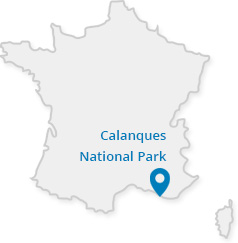A lookout and a calanque
Getting here and regulations
Getting to En-Vau
From Marseille:
- bus M08 – direction Cassis, Carpiagne Gineste stop then walk between 90 minutes and 2 hours to reach the lookout and calanque.
- bus RTM B1 or 521 in the evening – direction Campus de Luminy, Luminy – PN des Calanques stop, then walk 2 hours for the lookout or 3 hours for the calanque.
Hiking route: En-Vau Calanque via Le Gardiole
Getting to the Calanques from Marseille
From Cassis: walk between 90 minutes and 2 hours from Cassis town centre. Take the shuttle from the Gorguettes free park-and-drive to reach Port-Miou. Then take the path to En-Vau via Port-Pin.
Hiking route: En-Vau Calanque via Port-Pin
Getting to the Calanques from Cassis
Localisation
Lookout GPS coordinates: 43.204103, 5.494069
Calanque GPS coordinates: 43.202414, 5.497703
Map of trails and routes for reaching the En-Vau Calanque and lookout
Click to zoom
Before heading out into the Calanques National Park, prepare your trip and consult the page about good conduct and regulations.
La Gardiole route, the main access to the En-Vau lookout, is closed all year round. Park along the RD 559 route.
The calanque, lookout, and surrounding hills are open all year, except when closed due to fire danger.
Note: En-Vau Calanque is overcrowded in summer, particularly for swimming. Use public transport to get to La Gardiole and Cassis as car parks are often full, and respect the natural environment: do not leave waste behind or create noise pollution.
The paths to the lookout and calanque are steep and can be difficult, particularly in summer: make sure you are aware of conditions and prepare your trip.
Due to the steep topography, the calanque is gradually shaded in the afternoon.
It takes one hour to walk from the lookout to En-Vau calanque via the Oule pass and En-Vau valley.
En-Vau lookout
As its name suggests, this lookout, perched at 170 metres clinging to the cliffs in the middle of the pine trees has a clear view of En-Vau calanque. Its location in the axis of the fault makes it even more impressive. The enormous mass of the Castel Vieil plateau is at your feet, while in the distance Cap Canaille closes the Bay of Cassis. Further away, looms Cap Sicié.
Just below the viewpoint lies Oule calanque which is inaccessible by land. Jean Giono describes it in terms that inspire vertigo:
"The view of Oule (which means "cauldron") calanque from above is an unusual sight. Like a stone cauldron with perfectly vertical walls, nearly 100 metres deep, it is rightly named. Over 200 metres wide, this abyss has a passage to the sea measuring 25 to 30 strides. It is full of deep water, purple, hardly tempered by the reflection of the alabaster walls, the slightest noise resounds. Tiny wave that caress the rock in calm weather echo extravagantly, swifts, sea swallonws, seagulls and Northern Gannets flap their wings as if all the washerwomen in the sky were beating God's laundry together, while the wind makes the cosmic kitchens growl. Like the others, it is also possible to visit the calanque from the sea but less often, it inspires fear rather than enthusiasm."
En-Vau calanque
The walk from the lookout to the calanque takes one hour. Surrounded by two steep walls, it is often very crowded on sunny days. There is room for 400 towels comfortably, but in summer, numbers often climb to 1,200 people at the same time.
A sea shuttle transported passengers from Cassis port to the beach until the 90s. Landing has been banned since the 2000s and moorings distanced from the shore. Waste bins have been removed so that visitors take their rubbish home for sorting, as is the case for all uninhabited calanques.
The blue trail to the lookouts
On the shore opposite the lookout, at about 100 metres, a bleu trail connects En-Vau with Port-Pin along the coastline. Created in 2007 by an inclusive-recruitment program, it was designed to provide several typical viewpoints of the Calanques. This is the perfect place to stop and contemplate the view, observing the turquoise water through coastal pins and limestone rock from a variety of perspectives.
En-Vau in the arts
The site has inspired many artists, including painter Jean-Baptiste Olive who featured it in several works including one which is exhibited at the Musée d’Art de Toulon. But cinema is where En-Vau calanque has featured the most: with a graveyard in Les Marins perdus, an ancient boat transporting Protis in Honoré de Marseille, a submarine in L’Armée des ombres, and a helicopter in Fantômas)! See below for two sequences.
"I walked along the coastline on all the customs trails; at the foot of the cliffs, the long tourmented coasts, the Medietterean no longer had that sugary langour that had sickened me elsewhere; in the glorious mornings, the sea beats the promontories violently, showering them in glittering white, and I had the impression that if I plunged my hand in it, it would sever my fingers."
Did you know?
During the Second World War, the Germans built a reinforced concrete wall - part of the Südwall, also known as the Mediterranean wall - to ward off the allied forces landing in Provence. Similarly, the old Piolet refuge (where sleeping is no longer authorised) was originally a German military battery. It has a strategic position on top of the cliff in case of attack.




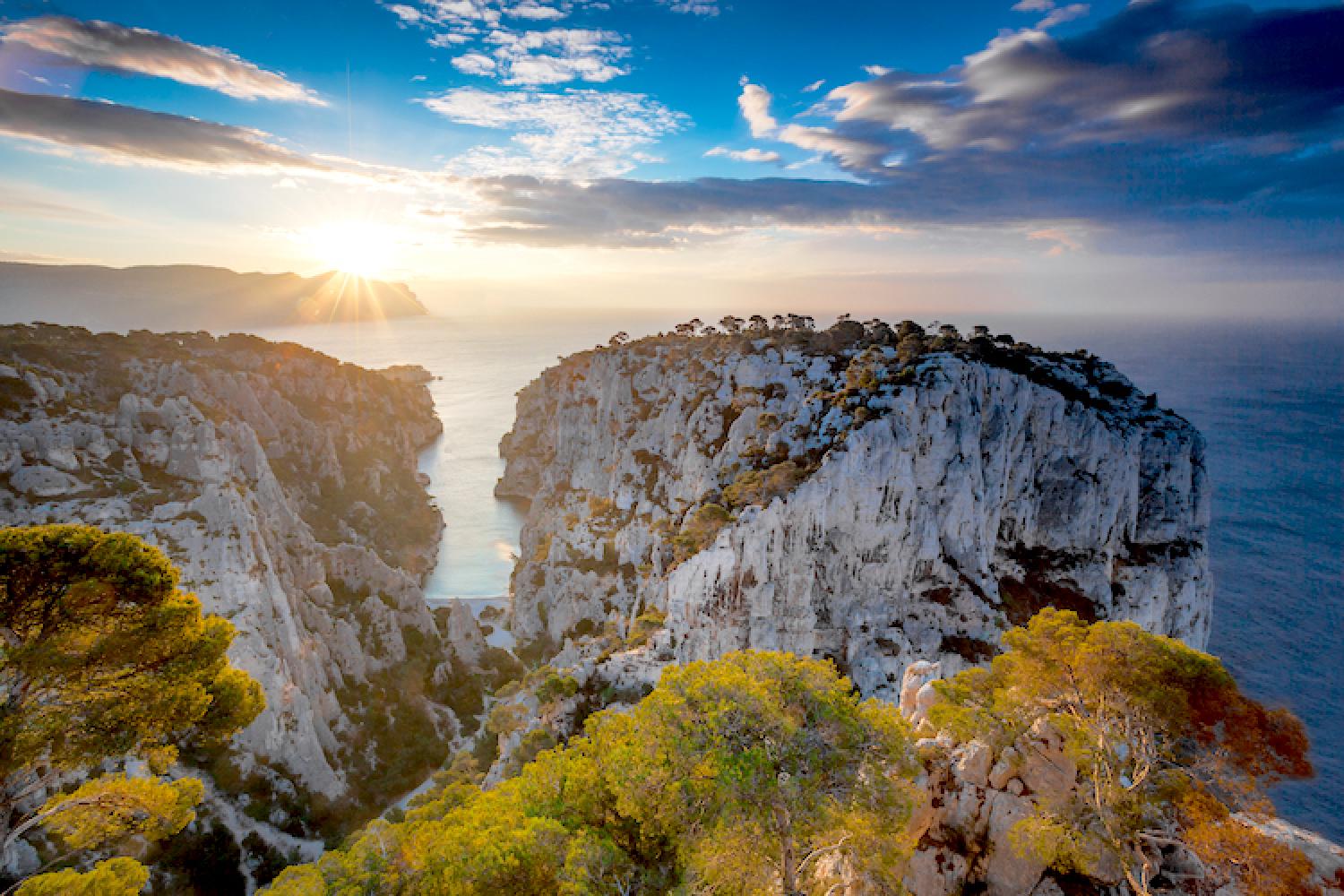
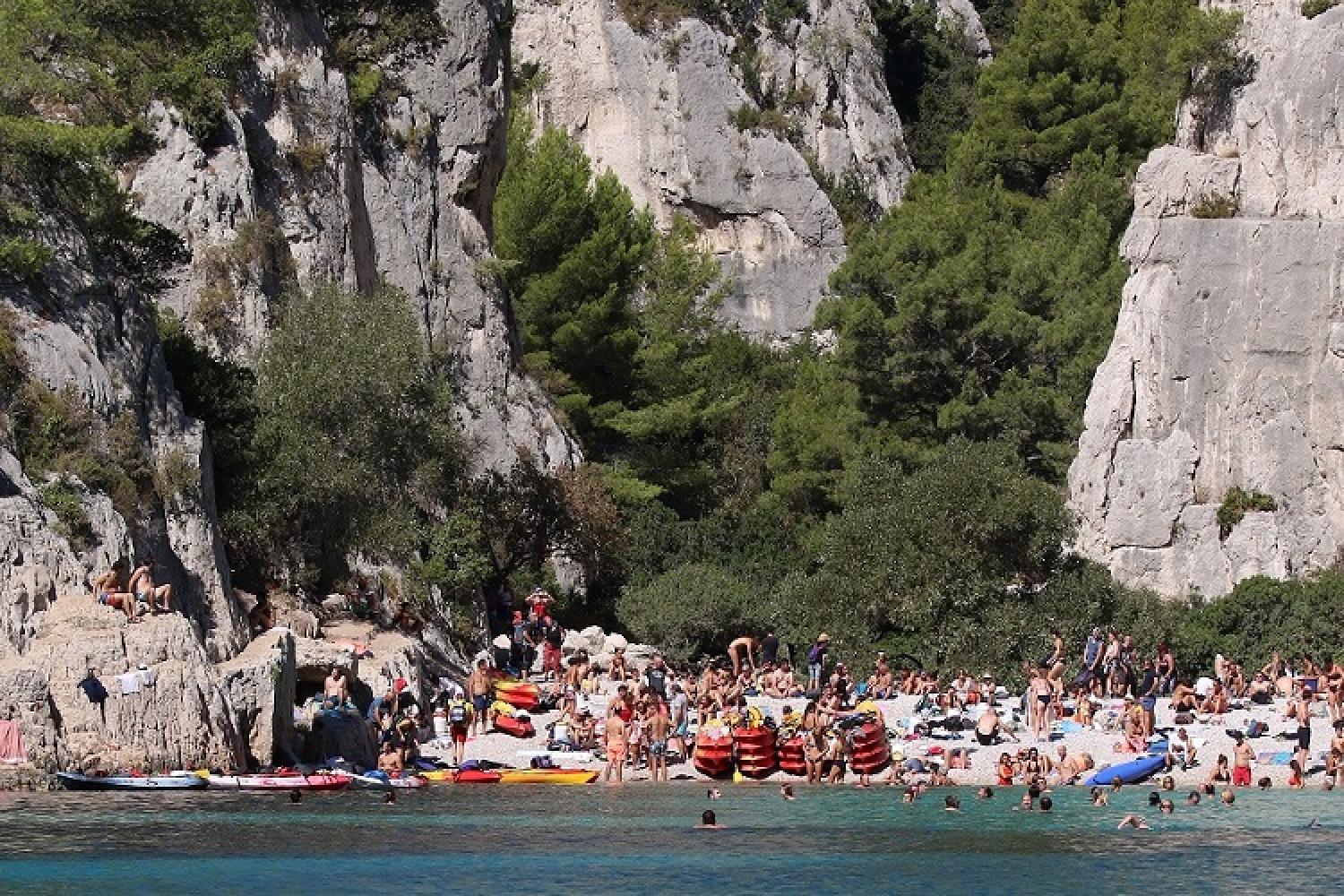
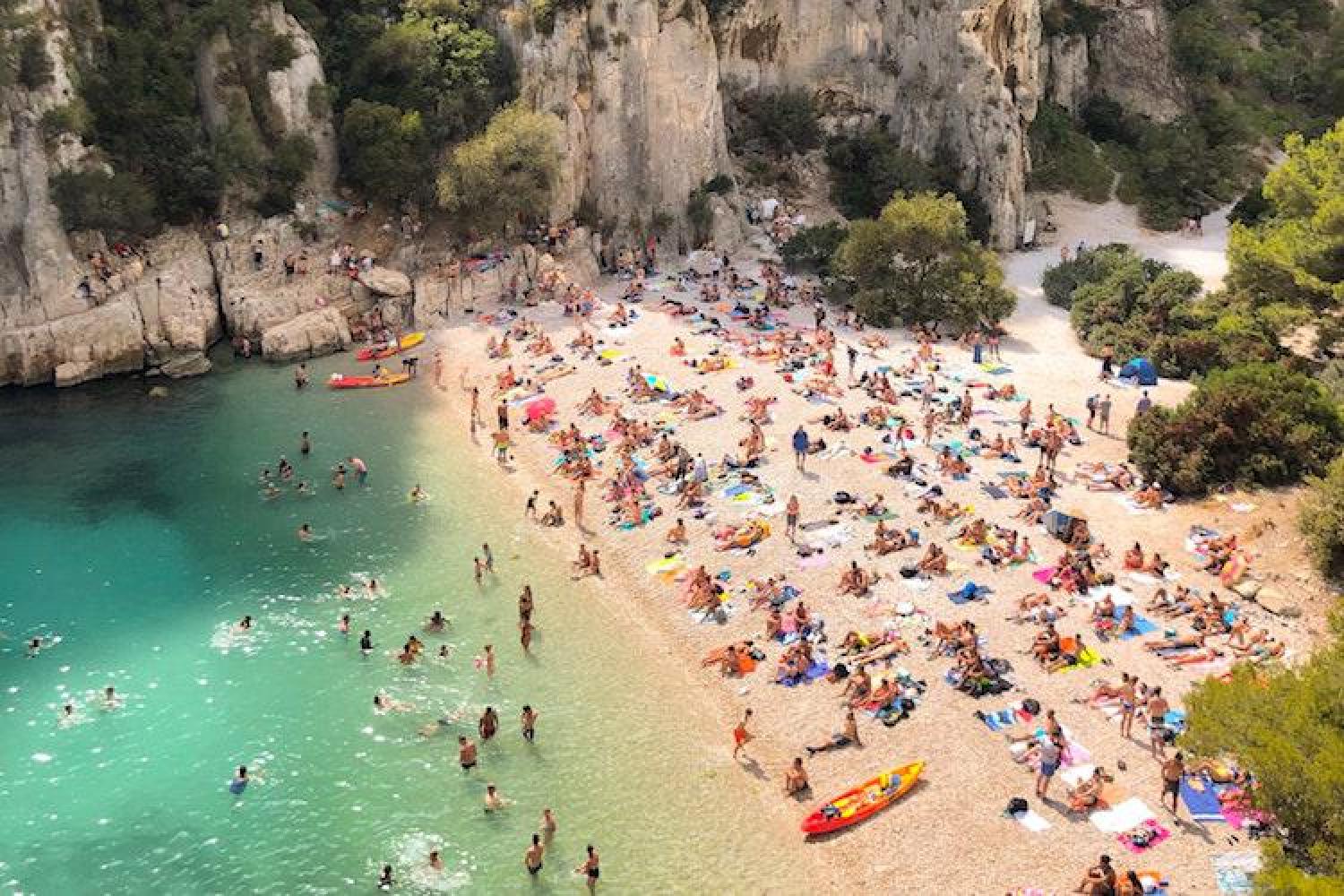
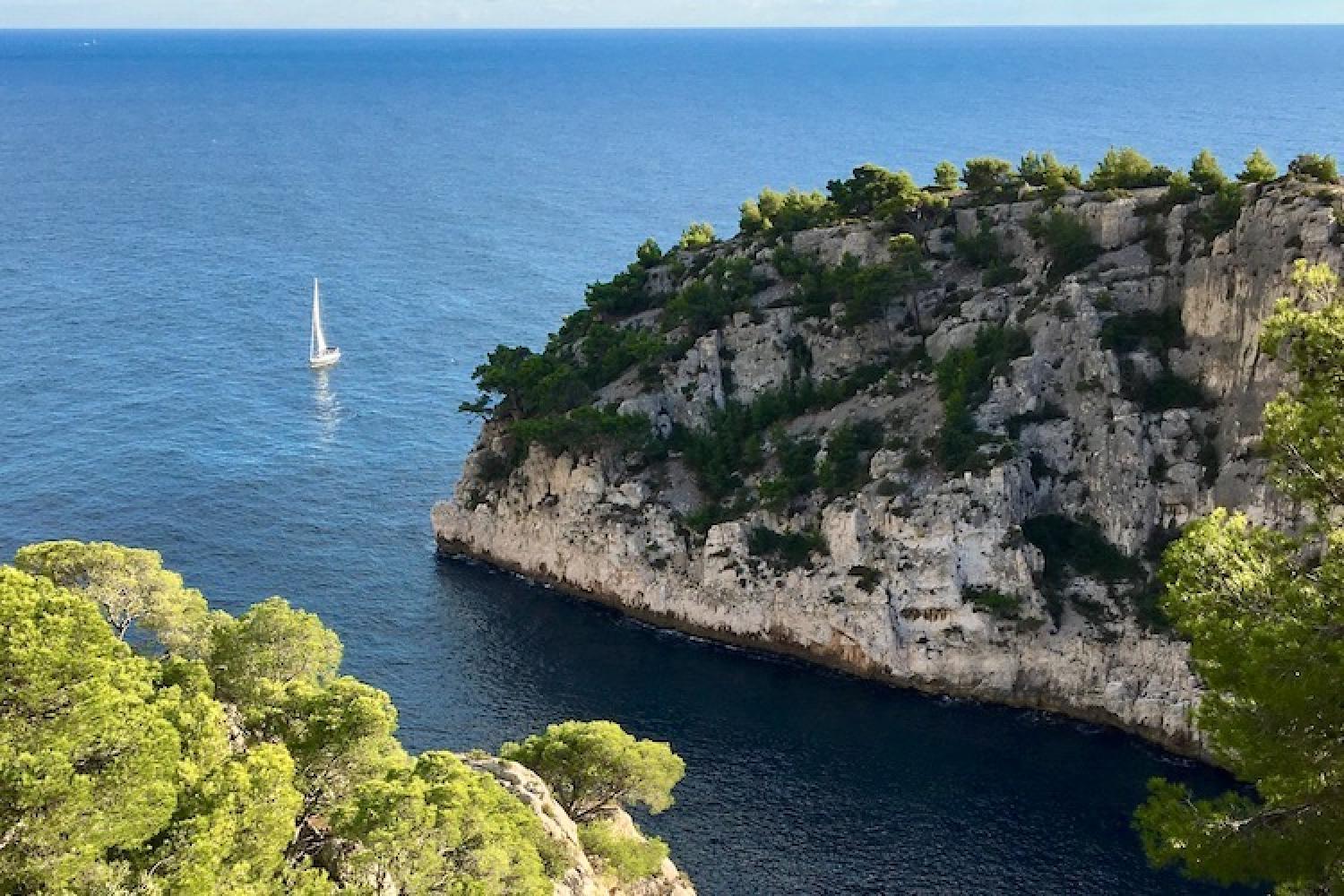
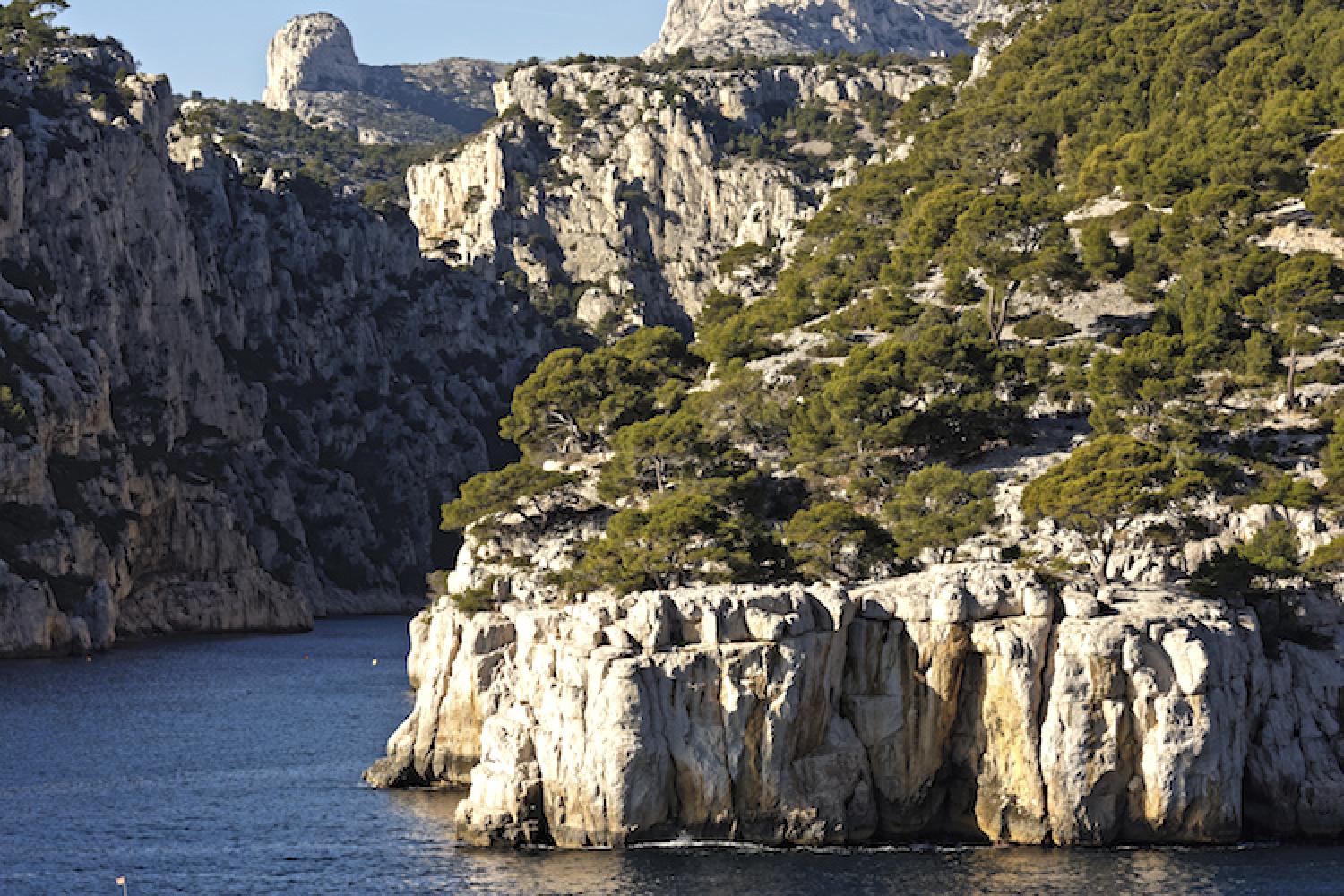
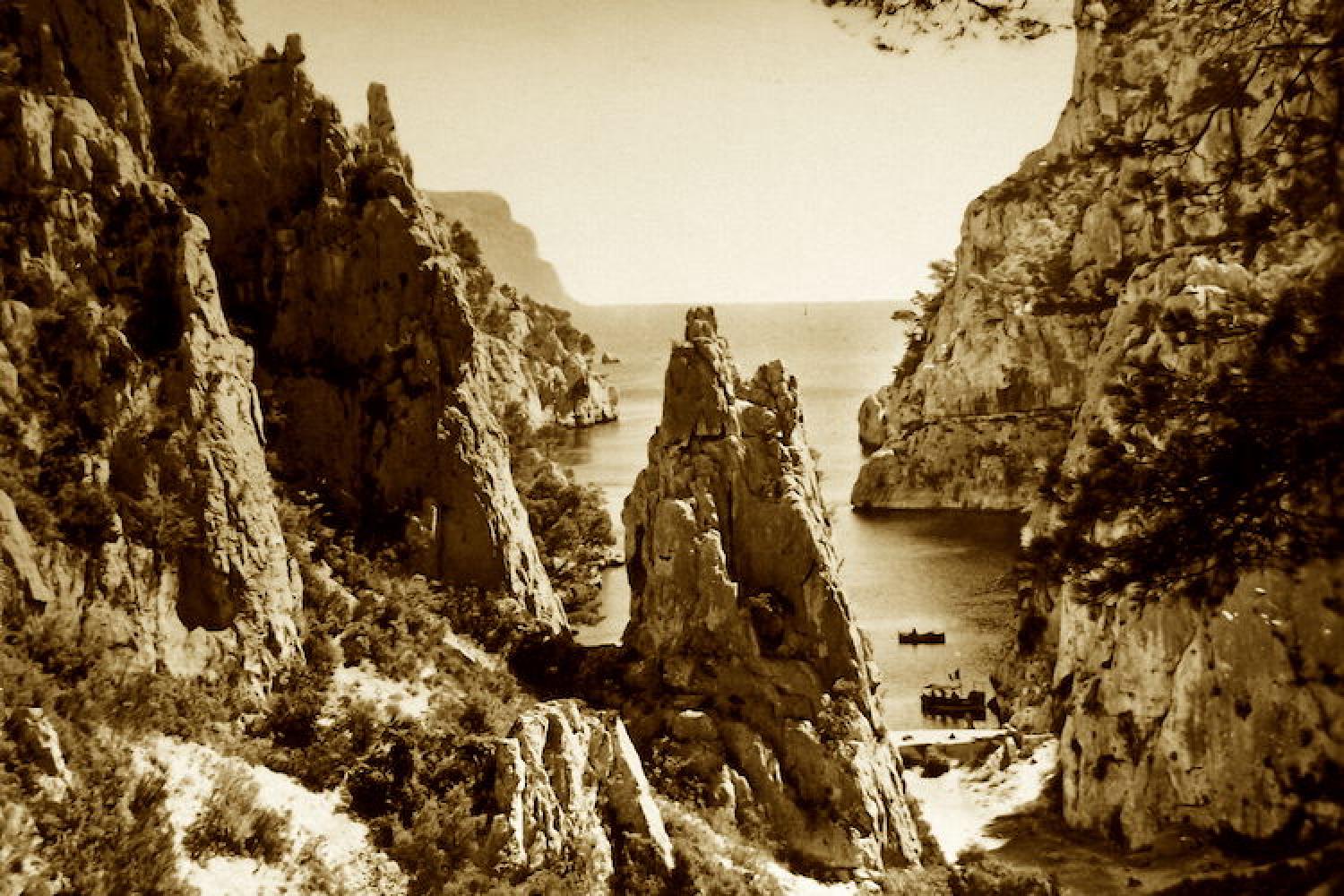
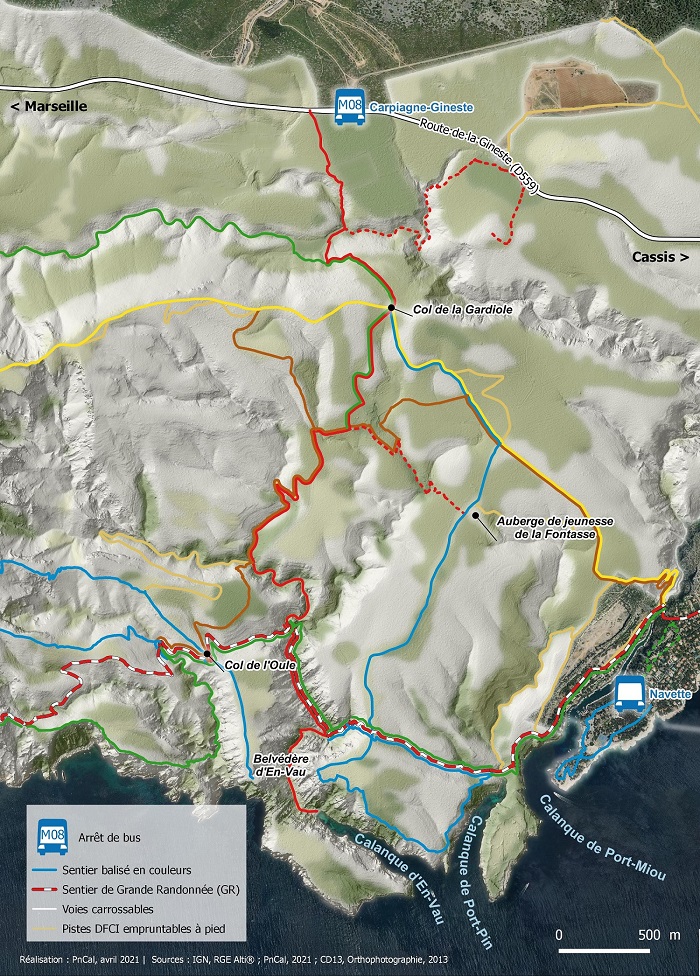
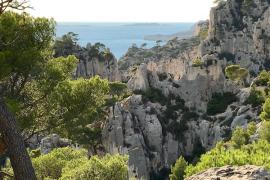
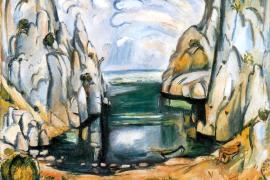
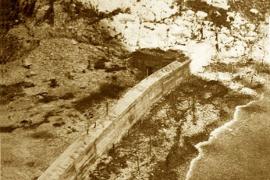
 Video
Video